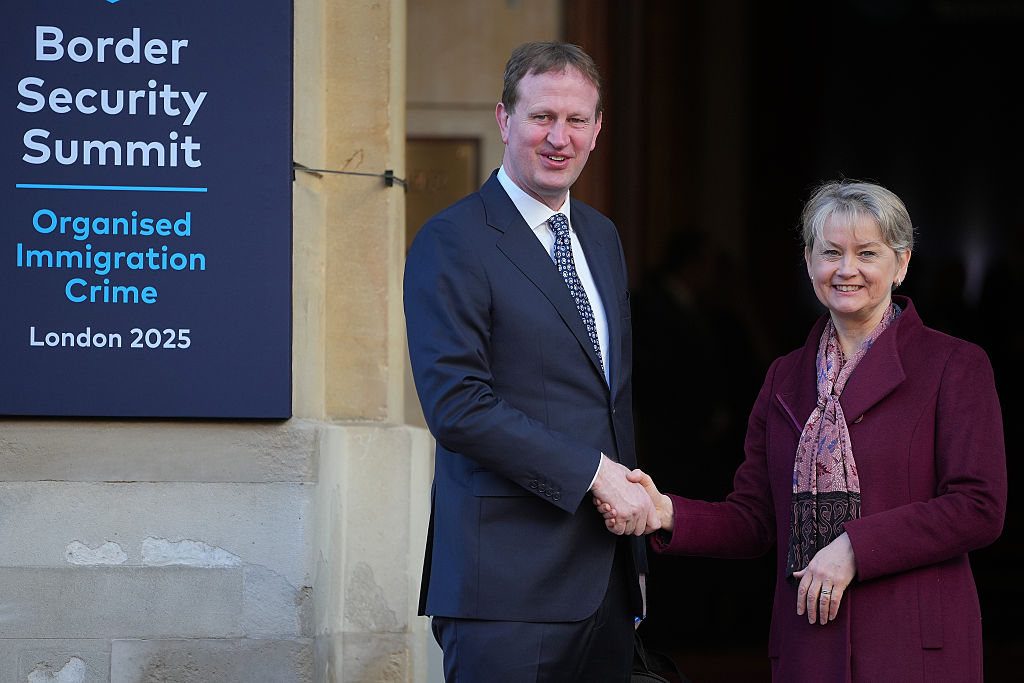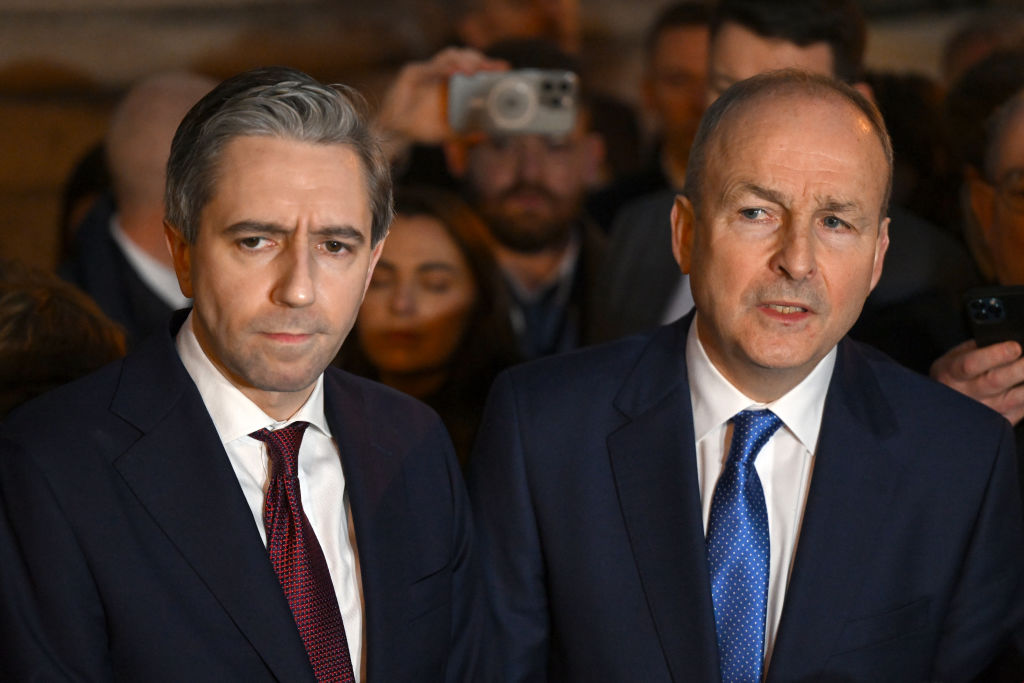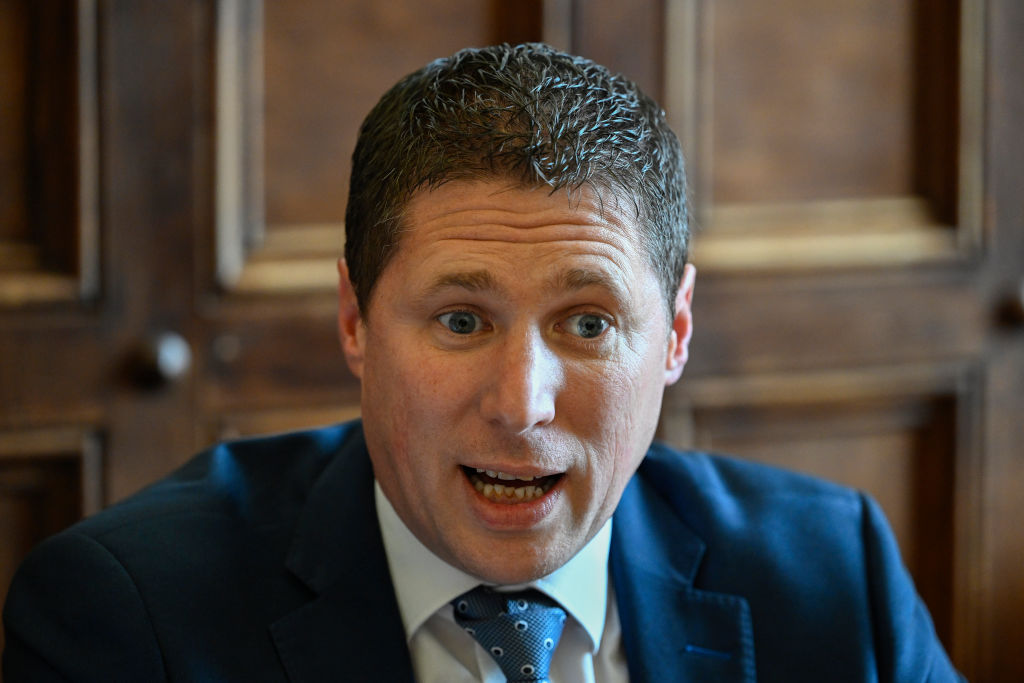Ireland plans to curb its high population growth with sweeping new migration and asylum rules, the country’s justice minister said.
“Our population last year increased by 1.6 per cent, which is seven times the EU average,” Jim O’Callaghan told reporters yesterday.
The government believed the “rate of increase does require a policy response”, he said. He added that population growth was “extremely high” and putting pressure on the European Union member state’s ability to provide services and housing, AFP reported.

Ireland has seen a dramatic surge in asylum applications – with a record 18,651 people applying for international protection in 2024 alone, up from 13,276 the previous year.
The number of immigrants arriving in Ireland has pushed its population to an estimated 5.46 million in April 2025, reflecting 2024’s highest annual increase in years, AFP reported.
It has also brought tensions, with violent protests in October outside an asylum-seeker hotel near the capital Dublin.
The government moves yesterday mirror tough new rules being introduced in the UK to cut the number of immigrants, as public concern in Britain has led to swelling support for the right-wing Reform party.
A raft of new measures were approved by the Irish Cabinet yesterday, including stricter rules on citizenship eligibility and family reunification for people from outside the European Economic Area (EEA), O’Callaghan said.
Deputy Prime Minister Simon Harris said earlier in November that general migration into Ireland was “too high”, prompting leftist opposition parties to accuse the government of “dog-whistling” to the far-right.
The new plans were brought forward by O’Callaghan and Junior Minister for Migration, Colm Brophy, the BBC reported.
International protection applicants who have jobs but live in State accommodation will be charged under proposals previously seen by BBC NI.
The amount asylum seekers pay will depend on their weekly income.
For example, those earning from €97.01 up to €150 per week may be charged €15 per week.
But those earning €600.01 and higher per week may have to pay €238 per week towards accommodation.
Asylum seekers who do not pay the charges and build up “significant arrears” may face court. They may also be pursued by debt collectors.
The changes also include the power to revoke or refuse a residence permit for a refugee if they are found to be in danger to the security of the State.
Asylum seekers who apply for citizenship also will have to show they can be self-sufficient and having not received certain social welfare payments before the previous two years.
Family reunification rules will also be tightened and those applying for citizenship will have to live in Ireland for five years, instead of three.

Tánaiste (Deputy Prime Minister) Simon Harris said on November 24 plans to charge asylum seekers a portion of their income is “a common sense measure”.
His comments echoed Taoiseach (Prime Minister) Micheál Martin’s stance, who said Ireland has always adopted a “humanitarian approach” to immigration but the changes were necessary, according to The Daily Express.
Addressing reporters at the G20 summit in South Africa on November 23, he said: “It’s fair and it’s robust and it’s also aligning with what’s happening elsewhere.
“Ireland cannot be an outlier in terms of benefits and so on, compared to other jurisdictions.”
But some Irish opposition parties have criticised the proposals, with Labour TD (MP) Ged Nash accusing O’Callaghan of “virtue signalling” on immigration, AFP reported.
Sinn Féin TD Matt Carthy urged the Irish Government to implement the plans quickly.

He said the Irish Government should set up a “bilateral returns agreement” with the UK.
“Without that, and without concrete measures to address processing times and ensure enforcement of decisions, no amount of recycled announcements will fix the realities of a dysfunctional IPAS [International Protection Accommodation Services] system,” he added.
Net migration to Ireland has almost doubled since 2022 compared to pre-pandemic levels to an average of 72,000 a year, according to Reuters.
The finance ministry has attributed the rise to “unprecedented demand” for employment permits and associated family reunification, as well as a large number of Ukrainian refugees.
“We don’t want to go back to the way Ireland was 80 years ago when our population was declining,” said O’Callaghan.
“It is a positive sign that it is increasing but the rate of increase is a worry,” he said, adding that the government recognised the invaluable contribution immigrants make to society and the economy.
Those applying to bring family members from outside the EEA to join them will now be required to prove they earn at least the median annual average wage of above €44,000 and have accommodation to support them.
The proposals will also oblige the 7,500 asylum seekers who are employed and living in State accommodation to contribute between 10 per cent and 40 per cent of their weekly income towards the costs.
The government has previously brought forward new laws to speed up application decisions and appeals.
O’Callaghan said he expects the processing times to be cut to within three to six months by next June.





